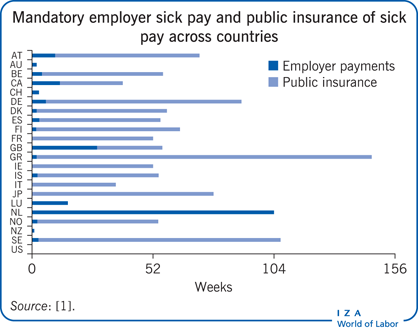Elevator pitch
Public schemes for sickness benefits and disability insurance are often criticized for the lack of incentive they provide for preventive and reintegration activities by employers. To stimulate the interest of employers in engaging with these schemes, several modes of privatization could be considered, including the provision of sickness benefits by employers, “experience rating” of disability insurance costs, employer self-insurance, or insurance by private insurance providers. These types of employer incentives seem to lower sickness rates, but they also come at the risk of increased under-reporting and less employment opportunities for workers with disabilities or bad health conditions. Policymakers should be aware of this trade-off.
Key findings
Pros
Financial incentives may contribute to preventive activities of employers, causing less worker absence and, subsequently, less disability enrollment.
Financial incentives may trigger employers to increase reintegration activities for sick-listed workers and workers with disability insurance benefits, particularly at the start of benefit receipt.
Workers with bad health conditions can be better protected against layoffs if subsequent disability benefit costs are paid for by employers.
Cons
Employer incentives to curb sickness and disability enrollment may cause under-reporting of disability cases, particularly if employers decide to discourage claims by lawsuits.
Employer incentives of sick pay and disability benefits costs may decrease the number of hirings of new workers, particularly for vulnerable workers with health or disability issues.
The consequences of incentive systems such as “experience rating” may be difficult to grasp, particularly for smaller employers, while they are facing potentially large financial risks.
